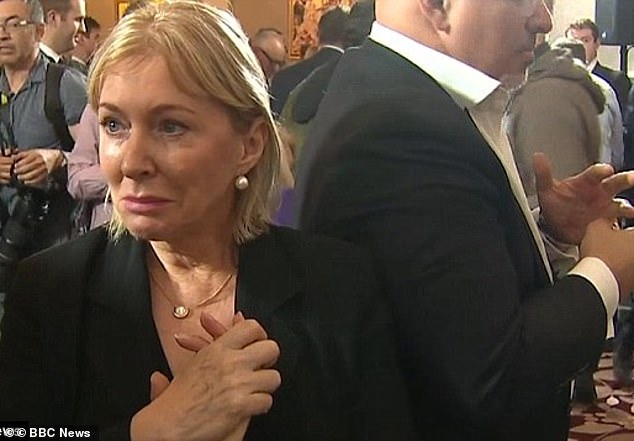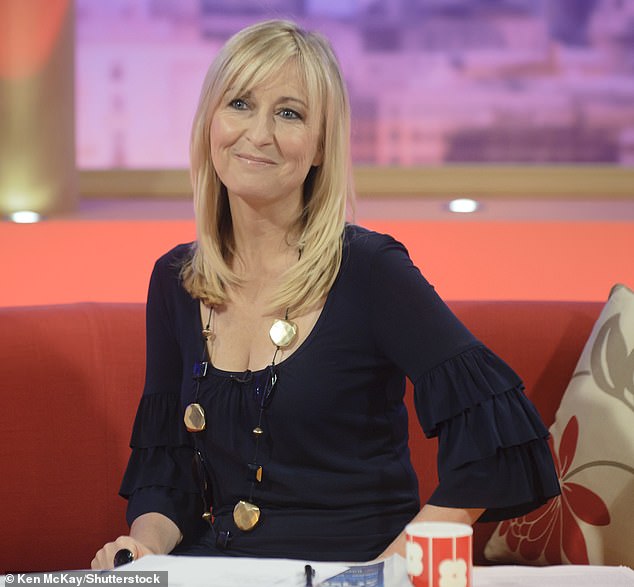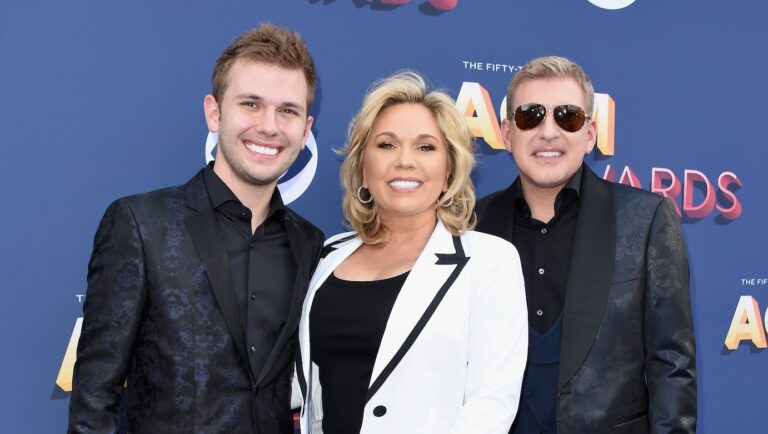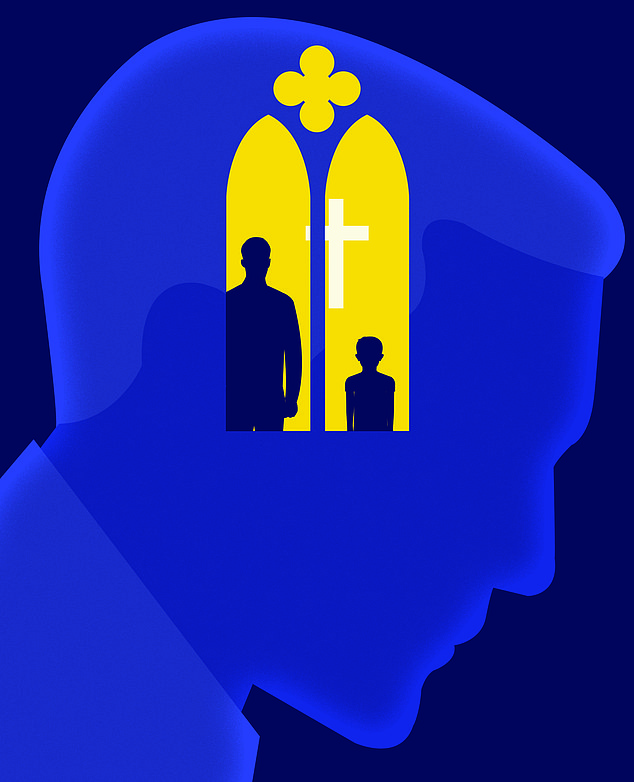‘My public humiliation was beamed around the world, too’
Nadine Dorries
Author, columnist and former secretary of state for Digital, Culture, Media & Sport
Watching the tears run down Rachel Reeves’ cheeks during PMQs on Wednesday, one thought came to mind, ‘she’s broken’, and my heart broke for her too. I know exactly what it’s like in the brutal world of politics to be completely exhausted, caught off guard and to cry when there are cameras around – only to have those images beamed around the world in seconds.
I don’t pretend for one moment to have experienced the stress Rachel endures in her role as Chancellor, but hard work, lack of sleep and the pressure cooker environment of Westminster, tends to deliver the same result: emotional vulnerability, especially in female MPs.
I’ve lost count of the number of MPs I’ve hugged who’ve been in floods of tears as a result of the aggressive environment they work in, or simply because they are desperately missing their children back at home in their constituencies.

It wasn’t just the story of Boris pulling out of the race that was setting the internet alight, it was images of me crying in the moments after he announced it, writes Nadine Dorries

Rachel Reeves crying in the House of Commons during Prime Minister’s Questions
My public humiliation came in 2016. David Cameron had just resigned as Prime Minister and Boris Johnson was running for leader, with Michael Gove as his backer.
I had been working hard behind the scenes, persuading Conservative MPs to back the winning ticket. As I walked into the hall, expecting Boris to announce his candidacy, I was a complete state. I hadn’t slept the night before and my hair was desperately in need of a wash.
Unbeknownst to me it was all about to unravel. Gove had pulled his support at the last minute and Boris felt that without Michael, he couldn’t win. He shocked us all by announcing he wouldn’t be running.
To say I was stunned is an understatement. I fled the room to a hotel around the corner, only for my phone to start pinging with messages moments later.
It wasn’t just the story of Boris pulling out of the race that was setting the internet alight, it was images of me crying in the moments after he announced it.
I felt deeply embarrassed. I do cry easily. But maybe it’s time we changed our perception of crying – from a sign of weakness to an outward expression of someone who cares deeply. So deeply that failing moves them to tears.
‘I was fashion roadkill, and boy, it hurt’
Liz Jones
Columnist and former editor of Marie Claire magazine

The fashion world is every bit as ruthless as politics, writes Liz Jones, its members only too keen to revel in someone else’s downfall
The worst part of ugly crying is when it’s done in public, slap bang in front of your peers. Oh, how I wish I’d followed Anna Wintour’s example and worn a pair of giant sunglasses when the humiliation of being unable to quell a quivering lip struck.
I was in New York for the shows, in my first season as fashion editor for this newspaper. The last time I was there, I’d been the editor-in-chief of a glossy: Marie Claire. In that incarnation, I was of course ushered to my front row seat at every catwalk show. This time, though, as I perched on a gilt chair at Donna Karan, representing a far less sycophantic publication, I felt the eyes of the PRs land upon me.
‘You can’t sit there,’ a young woman, holding an iPad like a shield, told me.
‘But I always sit front row.’
‘Not anymore,’ she said.
I gathered my things and the remnants of my dignity. ‘And please don’t take the goodie bag,’ the PR said meanly, referring to the gifts placed on front row seats only.
‘Well, where do you want me to sit?’ I asked her, unable to resist pointing out that, two seats along, they had spelt ‘Kate Moss’ wrong. ‘It’s not Moose.’
She said I would have to go and stand over by a wall, as there were no seats left. I did, wilting, as if awaiting a firing squad, forced to observe the fashion assistants, work experience girls and rival editors, all seated, gossiping and giggling at my plight.
And it was at that point, with goodness knows how many selfies being shot and shared, that I was unable to stem a very noisy bout of ugly crying, padded shoulders heaving, throat painful from barely suppressed sobs. I was exhausted and humiliated: two powerful tear jerkers.
The fashion world is every bit as ruthless as politics, its members only too keen to revel in someone else’s downfall. Not one person came over to commiserate: red-eyed, puffy faced, self-pitying women, mascara running, are off-putting. I was fashion roadkill and, boy, it hurt.
‘I’ve been called a ball-breaker but wept in front of the whole team’
Nicola Murphy
CEO of marketing agency The River Group and founder Whole People Group, a coaching business
It shouldn’t be, but crying is embarrassing. The loss of control. The vulnerability. And I’m not a good crier. I get puffy eyes and a snotty nose and resemble a pink rat for at least an hour afterwards.
Which isn’t a good look when you’re an entrepreneur, running nine businesses, including marketing agency The River Group as well as Whole People, a coaching business.
In the world of creative agencies, I’m one of a handful of female CEOs. I’ve been called a ball-breaker and worse in my career. It’s a sad truism that female leaders are often criticised for being un-womanly.
But at Christmas last year, I failed to hold it together and wept in front of all my agency colleagues.
The occasion was at the leaving speech I made when my (also female) MD, Jackie, retired after 18 years of us working together. She was the Robin to my Batman – professional, super effective and loyal.
I managed my thanks to her, but when I spoke about our time together I lost it. Wobbly voice, tears, snot… the lot.
I was embarrassed at the time but curiously I got a round of applause and a lot of support from my team. New colleagues could see their boss was human after all. I’d recommend it actually.
Did my mascara-streaked cheeks win me my first Glamour cover star?
Jo Elvin
Writer and founding editor of Glamour magazine

Jo Elvin burst into tears when Kate Winslet’s publicist cancelled a photoshoot for Glamour magazine
I didn’t have a cover. I was the editor of the first ever British edition of Glamour magazine and none of the celebrities I had begged to appear on the cover wanted to know. I’d even flown to LA and New York to plead my case in person to the publicists of Jennifer Lopez, Jennifer Aniston, Beyonce… but forget it. No one knew what the magazine looked like, and – no matter that this was a Conde Nast publication – no one was prepared to take a chance on me until they did.
Except for Kate Winslet. At first her publicist ignored all my calls and emails too, but eventually I got a message directly to Kate and, God bless her, she agreed. This was 2001 and to my mind she was perfect. She embodied so much of what I wanted the magazine to convey: glamour, yes, but with a down to earth vibe. This was the Hollywood star who’d recently got married in her local pub, after all.
As deadlines loomed – and were extended – we booked the photographer she wanted, the hair and make-up teams, the hotel suite – and it was all systems go.
Until her publicist phoned to cancel the shoot.
For complex reasons involving crossed wires and the way our ad agency had presented a particular TV campaign, he felt he couldn’t completely trust us and was pulling the whole thing.
I felt the blood drain from my body as I begged him to reconsider. There was simply no time to find anyone else. He held firm on his decision.
What did I do next? Let’s see… Oh yes that’s right. I took myself to the office loos and burst into tears. I gave myself around four minutes in which to wallow in howling, ugly sobbing. I had to get it out in a short sharp burst because there was no avoiding the next urgent task: explaining this unfolding calamity to my boss, Conde Nast chairman Nicholas Coleridge.
To my amazement, in the face of my hysteria, he remained completely calm, sweeping me up into the car for the short trip to the offices of Kate Winslet’s management in Covent Garden. I remember being mortified at the meeting we had with them. My face was deathly pale and make-up free save for the mascara streaks still trailing down my cheeks. Looking back, though, I think at least a couple of them softened immediately at the sight of this broken woman. I was only 31 at the time.
With Nicholas’s help, we sorted it out, the shoot happened and Kate was utterly fabulous. But I will never forget the drama.
‘Being the victim of a poison pen letter rattled me’
Lindsay Nicholson
Best-selling author and former editor of Good Housekeeping

Lindsay Nicholson once went to work straight after being involved in a horrific car crash only to find she couldn’t stop weeping
Not all public tears are bad. I will blub my way through funerals and especially weddings and have been so moved by sentimental films that my snuffling has caused other cinema-goers to shush me. But at work, I have always regarded business decisions as a puzzle to be solved not wept over.
Of course, there have been times when my feelings have threatened to overwhelm me. But never so much that I couldn’t walk with apparent calm to the Ladies before letting go.
It helped that once I became a magazine editor, I got my own office – though it was pretty-much a glass box, so everything I did was on show.
Once I went into work straight after being involved in a horrific car crash only to find I couldn’t stop weeping. So, I just re-arranged the furniture to sit with my back to the rest of the office when the tears flowed. Eventually, I went to my GP who diagnosed PTSD and signed me off sick.
The worst time, however, was when I was the victim of a poison pen letter, which was delivered to the office. It was obvious from the detail that the anonymous writer had been, and possibly still was, in proximity to me. I was not only distressed but physically scared.
Even so, the thought of letting an unknown, and cowardly, enemy see they had rattled me effectively jammed shut my tear ducts. I had a good old weep in private. After which it was fresh lipstick, shoulders back… teeth and smiles all the way.
‘The day I cried live on air’
Rachel Johnson
Journalist, broadcaster and podcaster

Rachel Johnson cried while presenting her LBC show during a segment on assisted dying
I cry during the news, during wedding speeches, when a dog dies, but when it comes to my so-called professional life, (almost) never. This marks me down of course as someone who is ‘walled in’ from my own emotions, who has attachment issues, who is no doubt emotionally avoidant… and who, of course, went to boarding school in another country at a tender age.
If I’m ever sacked – which I have been – I’d use the same expression as you’d use after a beating at school, which is to say ‘thank you, Sir’ and never hold a grudge.
That said, I have cried while presenting on national radio. We were talking about assisted dying on my LBC show: I was chatting to a caller and I suddenly ‘went’ as I recalled my mother’s last moments. In fact I fully lost the power of speech, and was terrified everyone would think the station had fallen off air. Luckily I saw the supportive faces of my producers in the gallery and pulled myself together quite quickly. I apologised to listeners and managed a strangled ‘sorry’ as soon as I’d composed myself.
‘I sobbed in the rain, then pulled myself together in time for a speech at the House of Lords’
Mariella Frostrup
TV presenter and menopause campaigner

I sobbed my way through London’s Borough Market on a rainy day after a call signifying the end of my four-year job as Times Radio’s lunchtime presenter, writes Mariella Frostrup
Sure I’ve cried at work, the first time in my twenties when my assistant betrayed me to my ruthless business partners at a music PR company. I had no experience of power play at work and I sobbed my way through the end of the meeting and all the way home on the tube as much at my own stupidity for being out-manoeuvred, as my sadness at losing a valued friend.
Most recently, I sobbed my way through London’s Borough Market on a rainy day after a call signifying the end of my four-year job as Times Radio’s lunchtime presenter. I then had to pull myself together in time for a speech at the House of Lords an hour later.
Does that make me weak or simply a human being? Our frustration with politicians these days stems in part from their tendency to act like automatons. That’s why the Chancellor displaying vulnerability is a welcome opportunity for a reset.
‘My world was over, but I refused to cry’
Eleanor Mills
Former editorial director of The Sunday Times, now author and founder of mid-life women’s website noon.org.uk

As Rachel Reeves demonstrated: when a senior woman cries, it plays in to so many cultural tropes about us being weaker, not able to hack it, writes Eleanor Mills
It’s been bred into my generation of 50-something women not to show weakness in the office. When I was made redundant – out of the blue after 23 years of service at The Sunday Times, what was upper most in my mind was: Don’t cry! Don’t cry! Don’t give them the satisfaction. In fact I was concentrating so hard on not crying, I totally dissociated.
While the papers were shuffled around the desk and the HR woman waffled legalese, my mind was soaring with the pigeons outside the window. Anything to distract me from the stark fact that my world as I had known it was over. That my professional self, my identity – had just died.
As Rachel Reeves demonstrated: when a senior woman cries, it plays in to so many cultural tropes about us being weaker, not able to hack it.
I hope this changes for my own daughters. I know now that being able to process emotion, truly feel it and let it pass through us, is a valuable part of being human. In order to feel joy, we also need to feel sad. But it’s still not acceptable in a female leader. Maybe when it is we’ll have true equality – but we are certainly not there yet.
‘I cried for an hour in the ITV loos’
Dorothy Byrne
President Murray Edwards College Cambridge University, former head of news and current affairs at Channel Four

Dorothy Byrne once went and sat in the Ladies for an hour and cried after joining Granada Reports
It was on my third day in my dream job that I went to the toilet and cried.
After several years as a local and regional newspaper journalist, I had finally won a coveted role on Granada Reports, ITV’s brilliant regional news programme for the North West, presented by Richard Madeley, Judy Finnigan and Tony Wilson. Tony, owner of Factory Records and the Hacienda club in Manchester, was impossibly cool. Judy was, to my eyes, impossibly glamorous. She had a dazzling presence on and off-screen with shining blonde hair and a fabulous figure. Richard was Mr Casual. They were not yet together.
It was my dream world and from the very first moment I felt I didn’t fit in at all. Granada was known as the radical company which made World in Action but it wasn’t politics people talked about, it was sex. It was clear they were not just talking about it. A lot of action occurred after the evenings in the bar and before the morning meetings, men and women would regale each other with their adventures the night before.
Then the news meeting began. We’d been ordered to come with three daily news features and everyone except me was brilliant, shooting forth a stream of ideas for the programme that night. I couldn’t think of anything to say.
On the third day I went and sat in the loo and cried for an hour. It was obvious to me that I would never survive in this world.
Eventually I came out and sat miserably at the news desk, hoping nobody would notice my puffy red face. The smart, glamorous woman next to me turned and asked, ‘I’ve been told to find out more about a fire. Have you any idea how I would do that?’ One thing a local newspaper journalist knows about is fires. I said, ‘You could try the fire brigade. I find they generally know a lot about fires.’ It sounded so sarcastic when I said it, but she said, ‘What a great idea. Thank you!’ And I thought, ‘I’m going to be OK here. They are all really cool but I’m not sure some of them know the basics of journalism.’ A sudden rush of confidence came to me.
It wasn’t long before I was shining in the morning news meetings. They all read The Guardian, so I would secretly read the Tory press and regurgitate its stories instead. Everyone thought I was very clever. I bought some better clothes and occasionally looked just a bit cool. I was on my way in TV.








